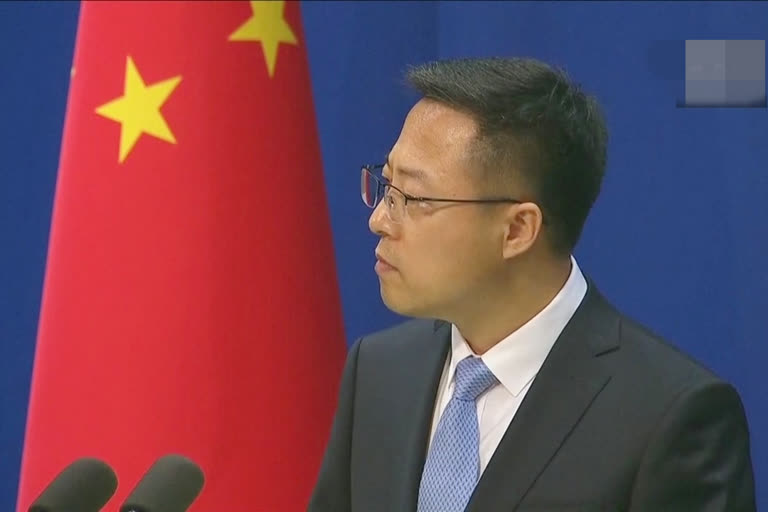Beijing:China warned India on Friday against making a strategic miscalculation in the ongoing border dispute between the two nuclear-armed and most populous Asian nations.
Nitin Gadkari, India's road transport and highways minister had said on Wednesday that Chinese companies will not be allowed to take part in the country's highway projects.
Chinese Foreign Ministry spokesperson Zhao Lijian briefing on Friday after the unplanned visit of Indian PM Narendra Modi to Leh region to look at border tension with China. China's Foreign Ministry spokesperson Zhao Lijian said such action violates the relevant WTO rules and will harm the interests of India itself, referring to the World Trade Organization.
"China will take necessary measures to safeguard the legitimate rights and interests of Chinese enterprises in India", Zhao told a regular press conference on Friday.
He called for India to work with China to properly handle the border issues between the two countries.
"India should not make a strategic miscalculation on China", Zhao said.
"We hope that the Indian side can work with China to safeguard the overall situation of bilateral relations."
Zhao also said the two sides are having dialogues over the border tensions and no party should take any actions that may complicate the situation, in response to Indian Prime Minister Narendra Modi's visit to a military base bordering China.
Read |Upping ante against China, Modi lands in Leh, interacts with soldiers
Modi’s visit comes in the backdrop of massive Indian army build-up in Ladakh region following hand-to-hand combat between Indian and Chinese soldiers on June 15 that left 20 Indian soldiers dead and dozens injured, the worst military confrontation in over four decades between the Asian giants.
Indian officials say there were casualties on the Chinese side as well, but there has been no confirmation by Beijing.
No other details of Modi’s visit were available. Both India and China have provided little information officially, but media in the two countries have given large coverage to the escalating tensions, much of it replayed on television news channels and social media.
Read |'China resorting to confrontation along LAC to punish India for rejecting BRI'
His Hindu nationalist Bharatiya Janata Party leader, B.L. Santhosh, tweeted Friday that Modi would also meet injured soldiers and called the visit a big, big booster to soldiers' morale. He leads from the front.
Indian officials say the current standoff began in early May when large contingents of Chinese soldiers entered deep inside Indian-controlled territory at three places in Ladakh, erecting tents.
They say the soldiers ignored repeated verbal warnings, triggering a yelling match, stone-throwing and even fistfights in at least one place along Pangong Lake, the site of several such confrontations in the past.
But the situation turned deadly on June 15 when the rival soldiers engaged in a nightly medieval clash in Galwan Valley, where India is building a strategic road connecting the region to an airstrip close to China.
According to Indian officials, Chinese troops atop a ridge at the mouth of the narrow valley threw stones, punched and pushed Indian soldiers down a ridge at around 4,500 meters (15,000 feet.)
Since the confrontation, India has sent huge reinforcements of soldiers, military equipment and fighter jets into the already highly militarized region.
The disputed border covers nearly 3,500 kilometers of the frontier that the two countries call the Line of Actual Control and that stretches from Ladakh in the north to the Indian state of Sikkim in the northeast.
India and China fought a border war in 1962 that also spilled into Ladakh. The two countries have been trying to settle their border dispute since the early 1990s without success.
Since then, soldiers from the two sides have frequently faced off along the contested frontier. Several rounds of military and diplomatic talks to end the current crisis in Ladakh have been unsuccessful.
India unilaterally declared Ladakh a federal territory while separating it from disputed Kashmir in August 2019. China was among the handful of countries to strongly condemn the move, raising it at international forums including the UN Security Council.
(AP)
